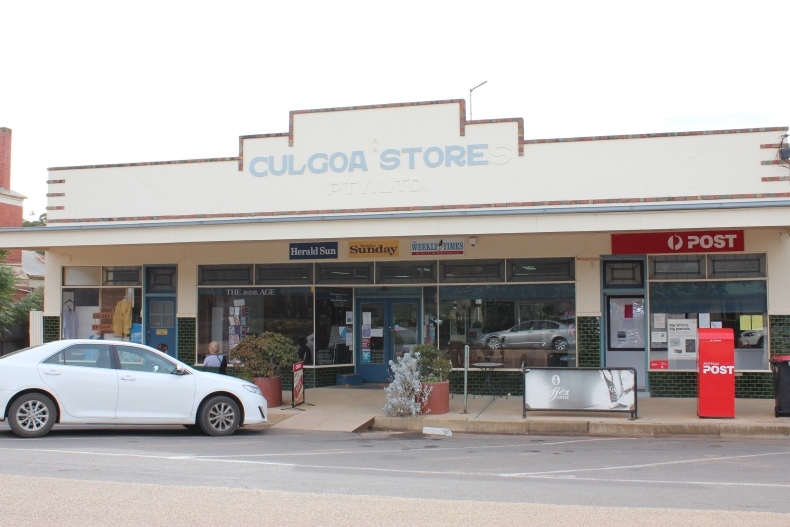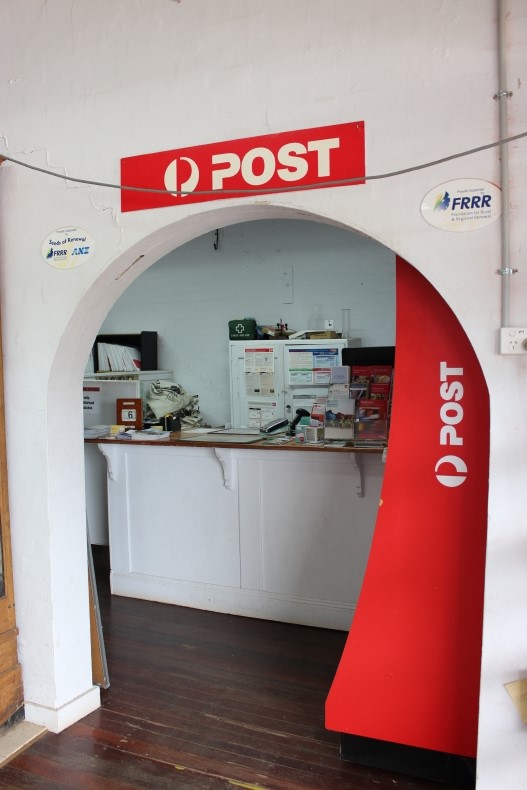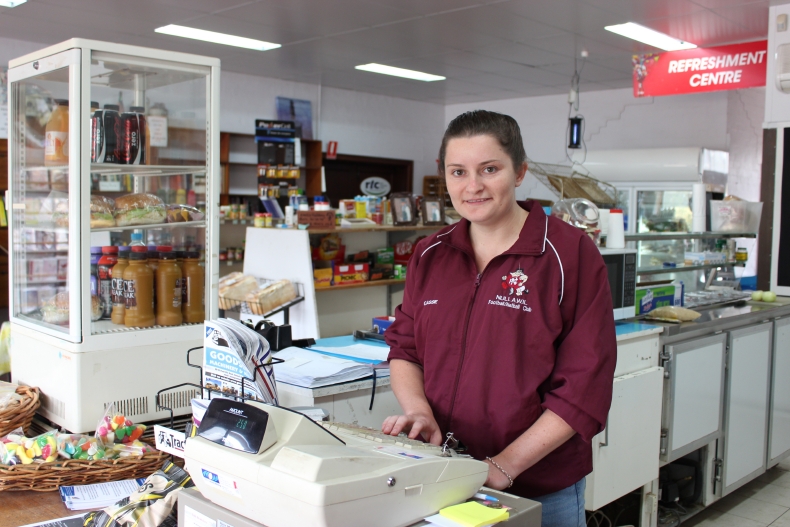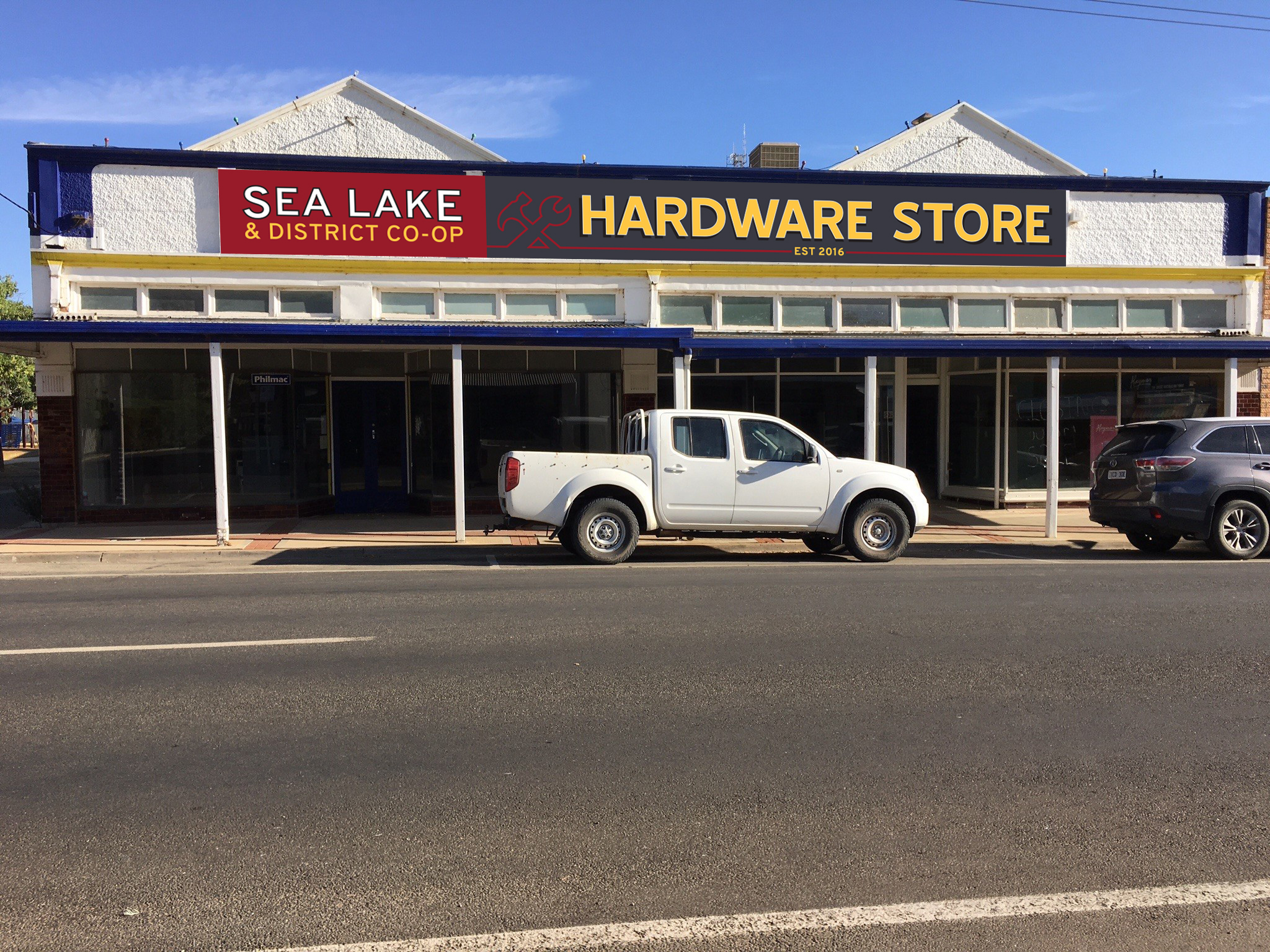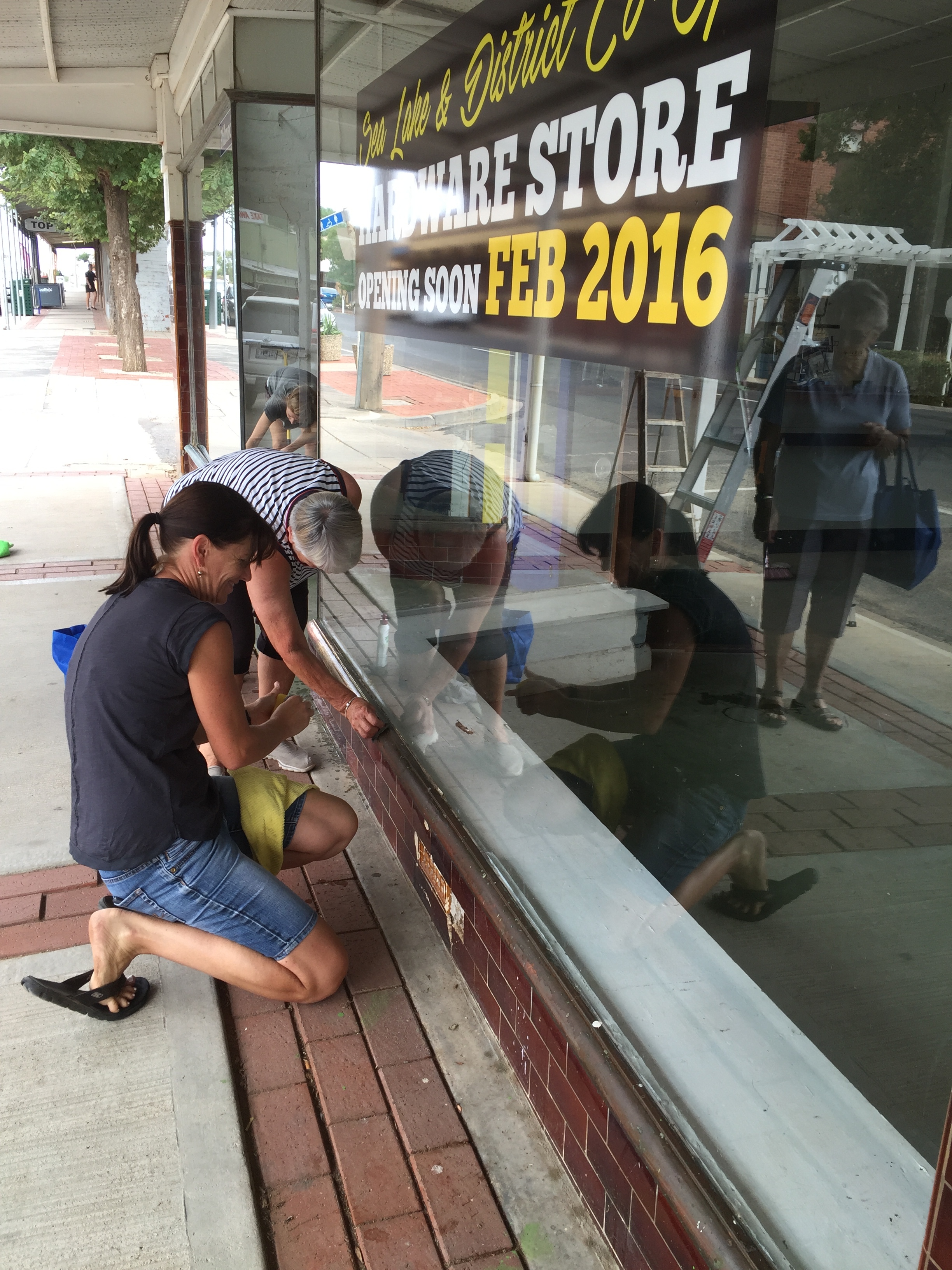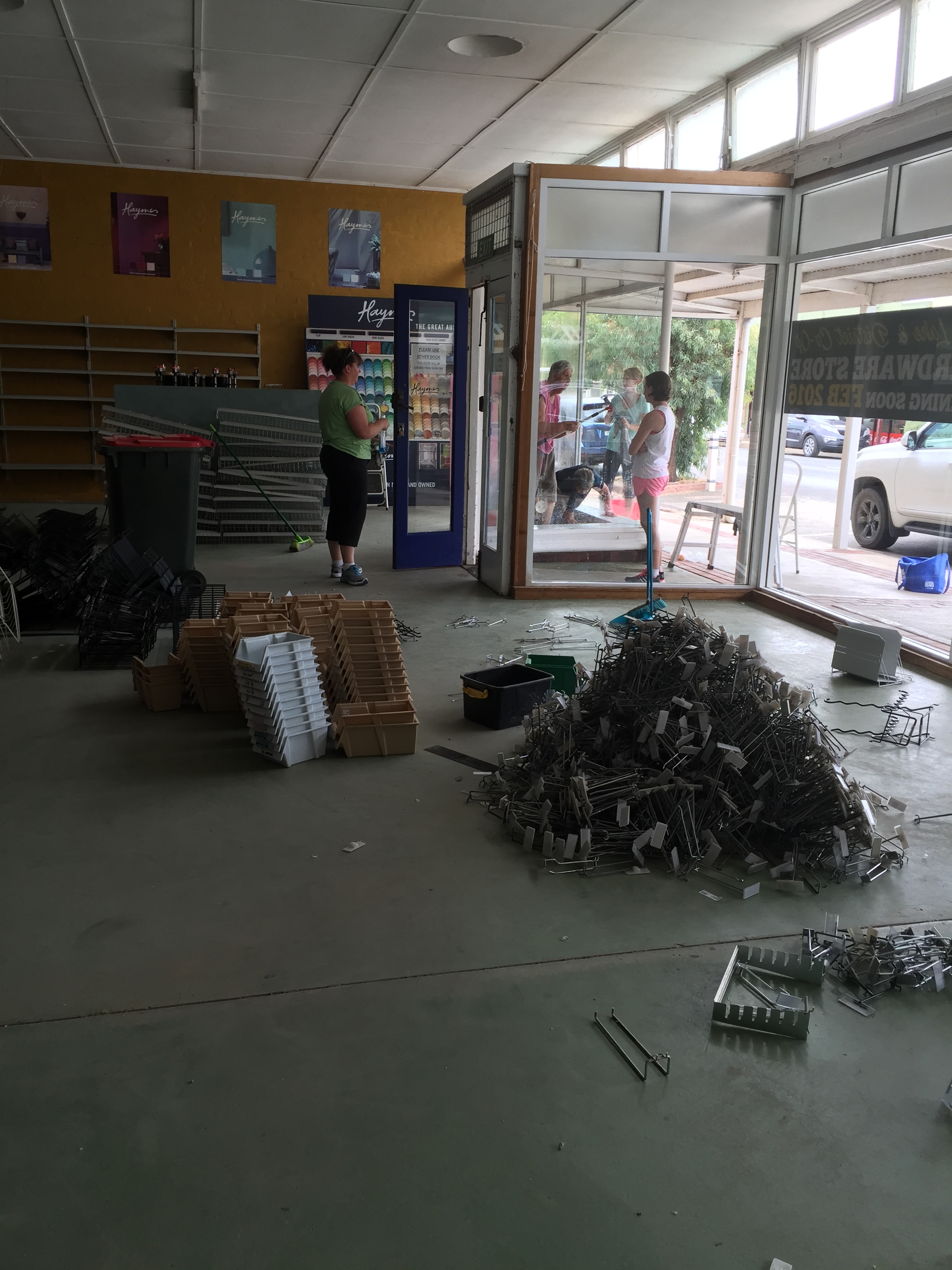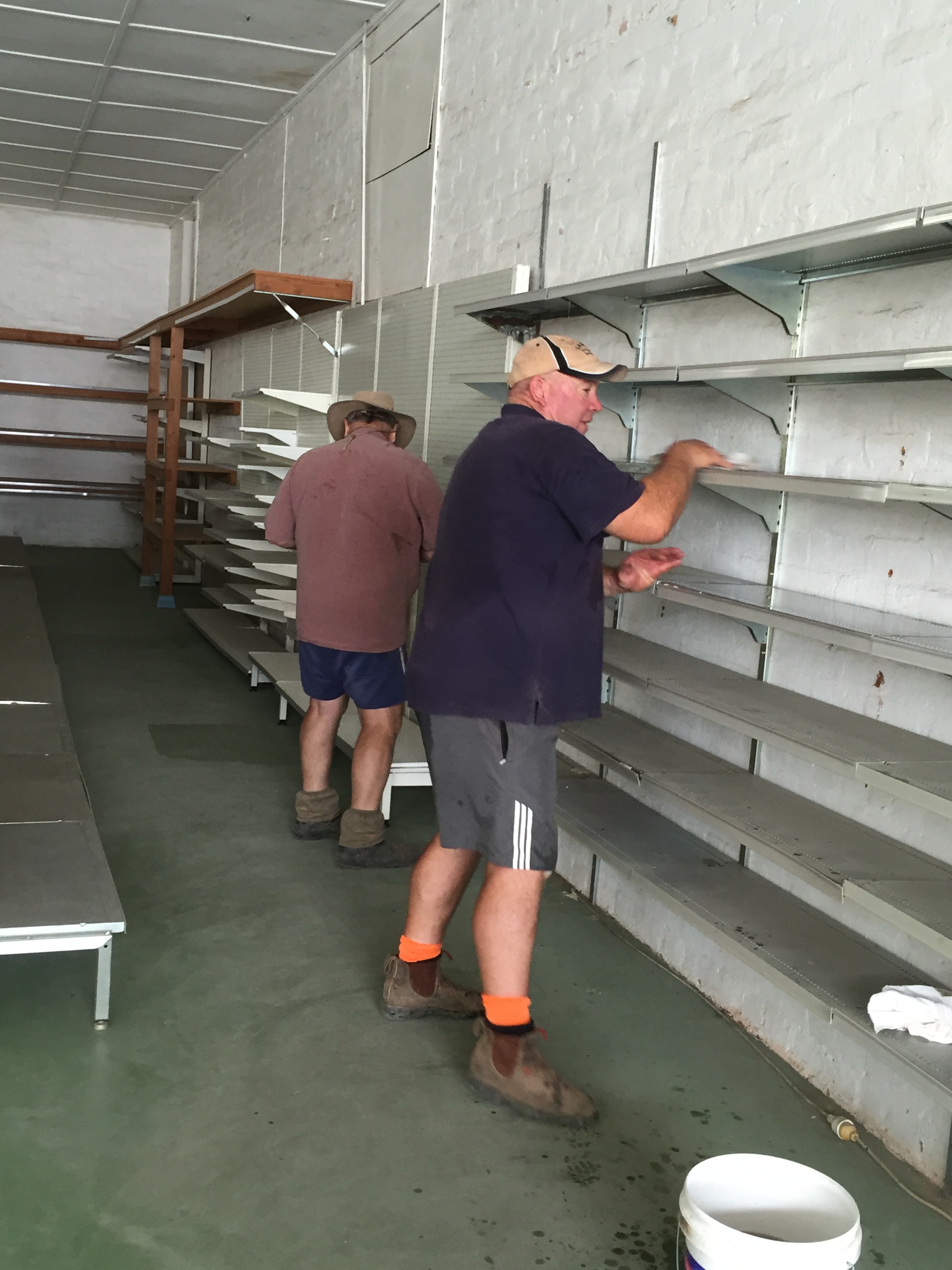Co-ops: Up close and personal
BY KERRY ANDERSON
During tough times rural communities’ band together and, for this reason, co-operatives are commonly formed.
Sea Lake & District Co-operative Limited re-opening their Hardware Store in February, 2016
Over the years everything from a rural general store to the local pub or hardware store has closed its doors only to be re-opened as a co-operative. Essentially a co-operative is filling a gap that the community feels is integral to their continued success and wellbeing. However, there is also a second and equally important objective of a co-operative, and that is to make a profit.
Chatting with a few people involved in rural co-operatives I discovered that it is far simpler to form a company than a co-operative. Likewise, making a profit can also be a challenge.
Kerri Barry has been a director of the Culgoa Community Co-operative since it first formed in 2003. “Pick a year, there is always some crisis happening, but in 2000 it was two-fold. We had a drought and our only shop was closing.”
But starting a co-operative doesn’t happen overnight. Over the past thirty years GMG Financial Group based in Swan Hill, Charlton and Balranald, has assisted some co-ops to get started in the region and, according to managing partner Rick Pickering, it is quite a long process.
In many ways determining whether a co-operative is the best path to take is the easiest part. “While a company structure is better suited to four or five partners, a co-operative is a far better vehicle if you wish to have varying share structures for a large number of shareholders,” says Rick.
Legislation in each State requires that you first hold a public meeting to determine if there is sufficient interest before forming a steering committee to establish what kind of model rules you wish to adopt.
Fortunately, in the case of Culgoa, that has a population of 339, there was immediate general consensus says Kerri. “We all knew how important the store was to our community’s mental health. If our store went it would tip us over the edge as far as that goes. The owner had bad health and couldn’t sell the business. This was the only solution to maintain this service in town.”
More recently, in October 2015, a co-operative was formed in nearby Sea Lake to re-open their local hardware store so there would not be a gap in their local retail sector. An impressive one hundred people out of a population of 616 turned up at the initial public meeting.
Having a key driver who is respected in the community and a group of supporting champions is essential to get a co-operative up and running. In Sea Lake’s case, interest was generated by a concerned farmer who had the experience of being a grain co-operative shareholder. He rang some other key people in the community to get them on board.
“We then ran a campaign to get the whole community interested,” explains Alison McClelland, who was subsequently elected secretary of the Sea Lake & District Co-operative Limited. “Our aim was to not lose another business and keep people shopping in Sea Lake. We wrote articles for the local newspaper and personally rang people.”
“Once a steering committee is formed their first decision is to decide on what model rules to adopt and, depending on the level of expertise available to you, this may involve communicating with professionals,” says Rick who became involved with Sea Lake right from the beginning.
“A submission to the Department of Fair Trading that governs co-operatives in Victoria, is akin to writing a feasibility study,” he explains. “A business model needs to cover membership, share capital, the type of business being conducted, directors and cash flow budget. Essentially you need to think right through to the end process when deciding on model rules.”
“We gathered expressions of interest and kept everyone informed through the newspaper and by email,” says Alison recounting the Sea Lake experience. “Our second meeting was when we started outlining what level of investment we were thinking of. For some people a starting base of $5,000 was out of their reach but they still wanted to be involved. For this reason we dropped it to $2,000 and basically accepted anything over $1,000.”
In the case of Culgoa most of the work was done by volunteers in setting up the co-operative and getting the store up and running.
“There was a lot of work in filling out the application,” concedes Kerri who did the bulk of the work when it was under the jurisdiction of Consumer Affairs Victoria. “The trick is to find one person in the Department that you can deal with.”
Under current legislation, once a co-operative’s application meets compliance, the model rules are presented at a ‘Formation Meeting’ with a formal motion to form a co-operative.
Ultimately Sea Lake raised $200,000 through 60 shareholders. “We would have liked more but it was enough to open the doors in February 2016,” says Alison. “Originally we had an agreement to rent the building for five years but then that changed to having to buy it with a few of us agreeing to be guarantors for a loan. It also took a lot of money to stock the shelves. We have a five year plan and are very mindful that we have a mortgage hanging over our heads.”
Over a decade earlier, a bonus for the Culgoa Co-operative was to receive federal funding to purchase the store and refurbish it at a very modest cost. Shareholders then purchased a minimum of 50 shares at $1 each.
“Co-operatives can be good to attract funding,” says Kerri. “We also had 12 months of wages covered but it was always our intention to run the store on a volunteer basis. It was a great honeymoon period but then, because of the drought, people involved in the shop had to go and get paid work which affected our volunteer base.”
“Ultimately any co-operative must seek to make a profit so they can be distributed back to members,” says Rick. “For example you can pay a dividend based on how many shares you own or you could pay a rebate or bonus based on how much business a shareholder does with the co-operative rather than their number of shares.”
He points that accounting processes in a co-operative are the same as for any small business but the reality, as we all know, can often be quite different with co-operatives sometimes just striving to survive.
“If it had been a private business it would have been closed long ago,” Kerri says of the Culgoa Community Store. “But because we’ve put our own money in we all make sure it stays open. We are very diligent in making sure we are in a position where we can pay our bills and sometimes have to fundraise.”
Governance can also be fraught with difficulties as people come and go. In a co-operative every share holder has an equal vote regardless of how many shares they hold. Some people put in more time than others, some are more highly skilled, and everyone bring different personalities to the table.
“As a board we are required to meet a minimum of four times a year,” says Kerri, “but we find it’s best to meet more regularly to be on top of things and have clear communication. In a small community sometimes it is hard to separate our board role from being a volunteer.”
“There are varying levels of professionalism in co-operatives,” says Rick. “If you have a good committee and treasurer, then generally a cooperative can cope, but if there is a change of personnel suddenly they might not be running so well.”
“We didn’t realise the financial strain and the workload of keeping the paperwork in order,” admits Kerri. “In hindsight we would have just had one person doing the accounting side of it.”
A lot has also changed in the thirteen years since Culgoa was established, some good and some bad. One recent change for the better is that co-ops are no longer required to be audited as long as they continue to meet their model rule requirements. This news was met with great delight in Culgoa where they struggled with this financial burden in their initial years.
“Another difficulty,” says Kerri, “is that our population has shrunk and sometimes we find it difficult to get five directors and they can’t always be involved hands-on. The re-start and traineeship employment programs have enabled us to employ some part-time staff but a few times we’ve had to have the hard conversation of whether to close or to put in more volunteer hours. Each time the community rallies but we are only just making ends meet.”
A much higher financial contribution has been required by the Sea Lake community for their venture. “We are very conscious that people have invested their personal money and it is important to run a good business,” says Alison. “For this reason we got good back up from an accountant right from the beginning and this cost is built into our annual budget.”
Trying to find the right people to work in the business is another challenge that Alison has discovered. “We are learning skills as we go. We started off with just a cash register and no electronic point of sale system which we’ve since discovered is essential for stock control. There is so much work behind the scenes setting up computers.”
While a paid manager has been appointed, Alison is still a hands-on volunteer doing a bit of everything while the store gets established. Shareholders pitched in to get the store opened and continue to help out when they can.
Exploring ways of running a co-operative more efficiently is obviously a smart move. Culgoa has picked up the local postal service while Sea Lake is keen to diversify in the future.
“We should be looking at employment incentives, traineeships and work experience options as well,” says Alison, but admits they have been just too busy.
All difficulties aside, there have been no regrets for either of these two rural co-operatives.
“Even if we had known all this in hindsight, we still had the drive and passion,” says Kerri.
“It’s all about community involvement,” says Alison. “We might not be making millions but we’re holding our own and saving our community from having to travel to Swan Hill to shop.”
Kerri’s top tips:
Get lots of helpers. Ensure shareholders are willing to help out, not just say it’s a good idea.
Seek professional advice through the rural financial counselling service and other avenues available to your community
Alison’s top tips:
Before opening, have a few dummy runs with pretend customers.
If retail, have a point of sale system otherwise just too hard to control stock.
Rick’s top tips:
Get at least two or three champions to generate interest in starting a co-op.
Treat it like a normal business and plan to provide a return on your investment right from the beginning.
READ CO-OPERATIVES: TIME FOR A RESURGENCE?
KERRY ANDERSON: A businesswoman, philanthropist and community advocate from Central Victoria, Kerry Anderson is passionate about rural and regional Australia. She works with small businesses and rural communities to help them embrace new opportunities. READ MORE
CATCH UP WITH KERRY IN PERSON: During August Kerry is sharing her knowledge on entrepreneurship as part of the Small Business Festival in Melbourne (8 Aug), Geelong (19 Aug) and Bendigo (31 Aug). READ MORE

